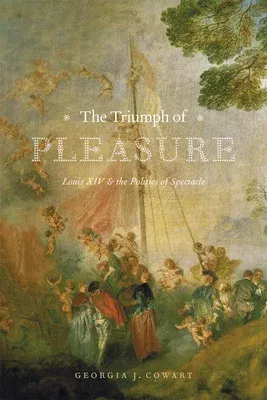Georgia J Cowart
(Author)The Triumph of Pleasure: Louis XIV & the Politics of SpectaclePaperback, 20 October 2014

Qty
1
Turbo
Ships in 2 - 3 days
In Stock
Free Delivery
Cash on Delivery
15 Days
Free Returns
Secure Checkout

Print Length
324 pages
Language
English
Publisher
University of Chicago Press
Date Published
20 Oct 2014
ISBN-10
022621155X
ISBN-13
9780226211558
Description
Product Details
Author:
Book Format:
Paperback
Country of Origin:
US
Date Published:
20 October 2014
Dimensions:
22.61 x
14.99 x
2.03 cm
Genre:
French
ISBN-10:
022621155X
ISBN-13:
9780226211558
Language:
English
Location:
Chicago, IL
Pages:
324
Publisher:
Weight:
453.59 gm